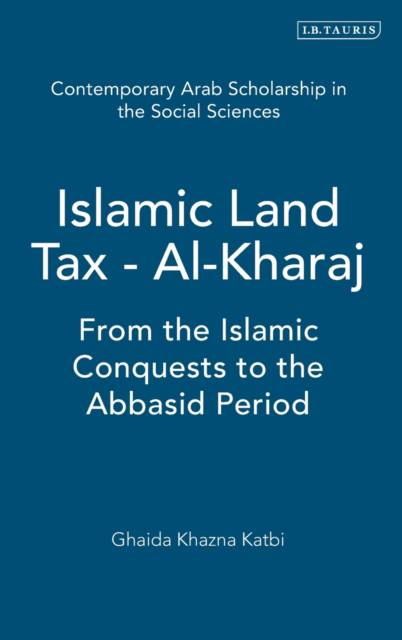
Je cadeautjes zeker op tijd in huis hebben voor de feestdagen? Kom langs in onze winkels en vind het perfecte geschenk!
- Afhalen na 1 uur in een winkel met voorraad
- Gratis thuislevering in België vanaf € 30
- Ruim aanbod met 7 miljoen producten
Je cadeautjes zeker op tijd in huis hebben voor de feestdagen? Kom langs in onze winkels en vind het perfecte geschenk!
- Afhalen na 1 uur in een winkel met voorraad
- Gratis thuislevering in België vanaf € 30
- Ruim aanbod met 7 miljoen producten
Zoeken
€ 296,95
+ 593 punten
Omschrijving
In this exhaustive survey of the institution of al-Kharaj - land tax in Islam - Ghaida Khazna Katbi provides a comprehensive and minutely detailed history of a practice which evolved from an exigency of conquest into an essential pillar of the early Islamic state. At the time of the Muslim conquests, al-Kharaj constituted a tax on lands owned by non-Muslims. It gradually developed into an instrument of state under 'Umar bin al-Khattab and reached its most refined and complex form under the Abbasids.Katbi provides a thoroughly documented statistical analysis of the historical materials for each region of the early Islamic world, in the process examining the Byzantine and Sasanian models which the Arab administrators consulted and in some instances adopted. She reveals unprecedented source material including never-before published correspondence from Umayyad functionaries as well as other documents from the Caliphate, Umayyad and Abbasid periods.
Specificaties
Betrokkenen
- Auteur(s):
- Uitgeverij:
Inhoud
- Aantal bladzijden:
- 432
- Taal:
- Engels
- Reeks:
- Reeksnummer:
- nr. 6
Eigenschappen
- Productcode (EAN):
- 9781848850637
- Verschijningsdatum:
- 22/06/2010
- Uitvoering:
- Hardcover
- Formaat:
- Genaaid
- Afmetingen:
- 157 mm x 234 mm
- Gewicht:
- 793 g

Alleen bij Standaard Boekhandel
+ 593 punten op je klantenkaart van Standaard Boekhandel
Beoordelingen
We publiceren alleen reviews die voldoen aan de voorwaarden voor reviews. Bekijk onze voorwaarden voor reviews.









